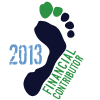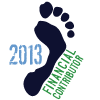Here's a Times article about flawed research on running economy:
http://well.blogs.nytimes.com/2012/08/29/finding-your-ideal-running-form/
Unfortunately they do not name the shoe that the women wore, but I highly doubt it was truly minimalist, as most of them landed heel-first--they probably had a cushioned runner like the Merrell Bare Access or Nike Free. The 'just run' approach really comes into its own when you get the full proprioceptive feedback of running bare. Too bad they probably won't being doing research on what kind of form some random group of people would evolve over a similar period of novice running if they were barefootin' it.
I thought this bit was key:
“If runners can self-optimize,” as the women in this study seemed to do, then “maybe we should teach runners to learn to understand how the movement feels to them,”
That seems to be what has happened for me. As I've looked through some of the literature on running mechanics, it has helped increase up my evolving economy by introducing a conscious element into the feedback loop. I have a better image of what should be going on, and this image helps my body self-calibrate by feel somehow.
http://well.blogs.nytimes.com/2012/08/29/finding-your-ideal-running-form/
Unfortunately they do not name the shoe that the women wore, but I highly doubt it was truly minimalist, as most of them landed heel-first--they probably had a cushioned runner like the Merrell Bare Access or Nike Free. The 'just run' approach really comes into its own when you get the full proprioceptive feedback of running bare. Too bad they probably won't being doing research on what kind of form some random group of people would evolve over a similar period of novice running if they were barefootin' it.
I thought this bit was key:
“If runners can self-optimize,” as the women in this study seemed to do, then “maybe we should teach runners to learn to understand how the movement feels to them,”
That seems to be what has happened for me. As I've looked through some of the literature on running mechanics, it has helped increase up my evolving economy by introducing a conscious element into the feedback loop. I have a better image of what should be going on, and this image helps my body self-calibrate by feel somehow.


































